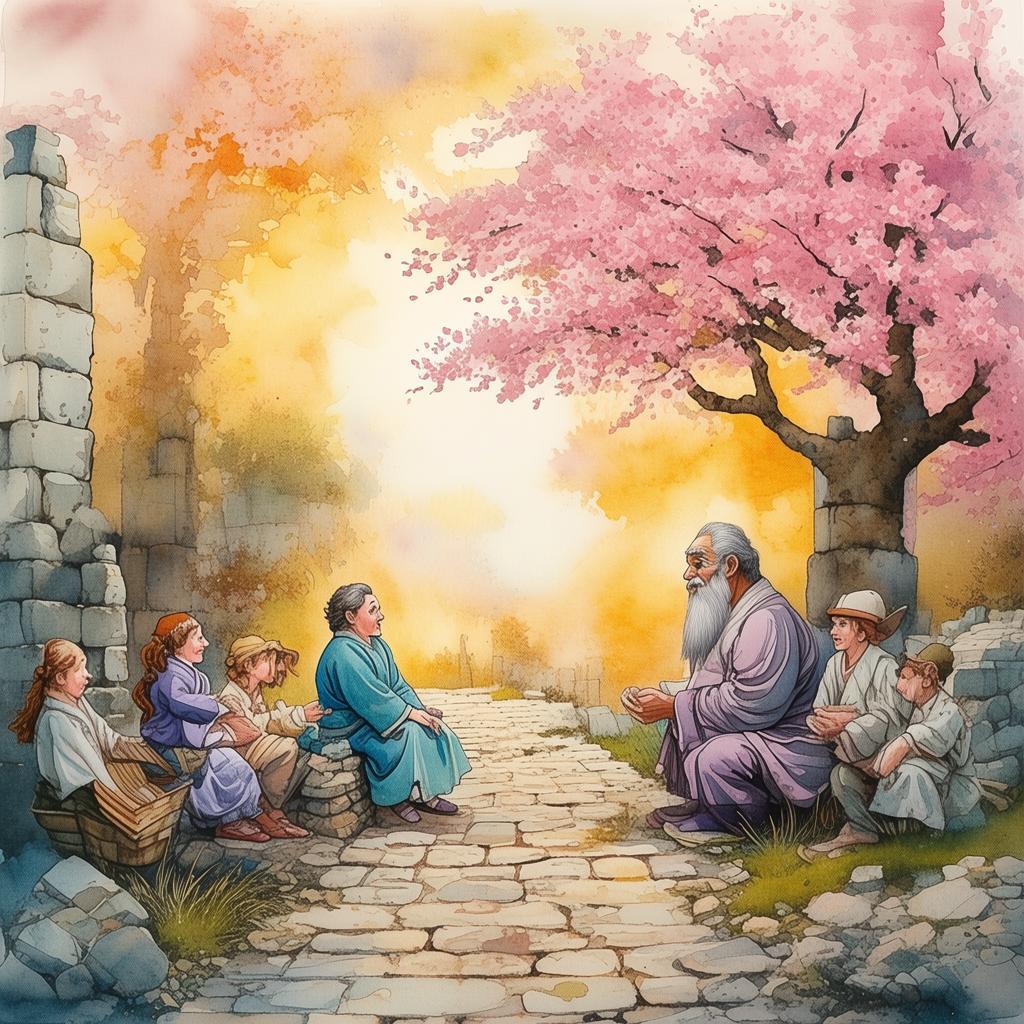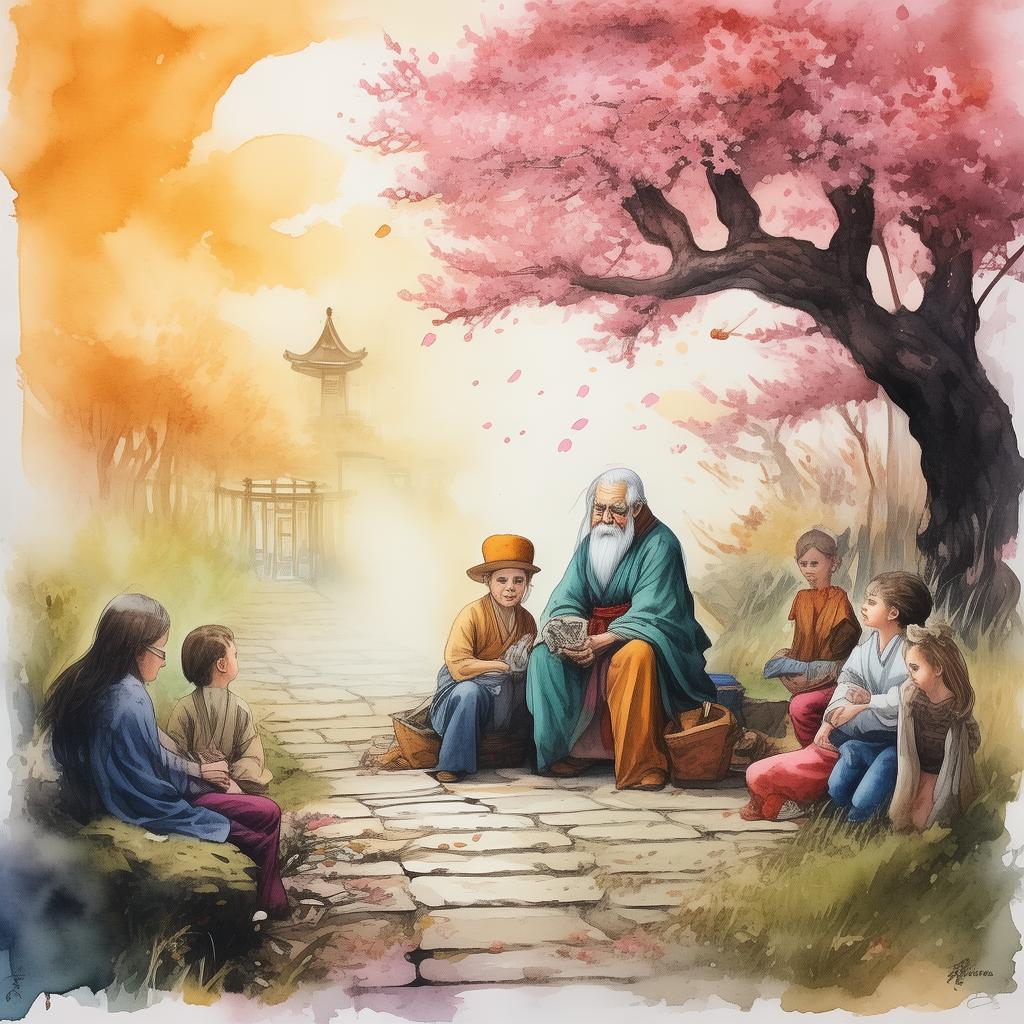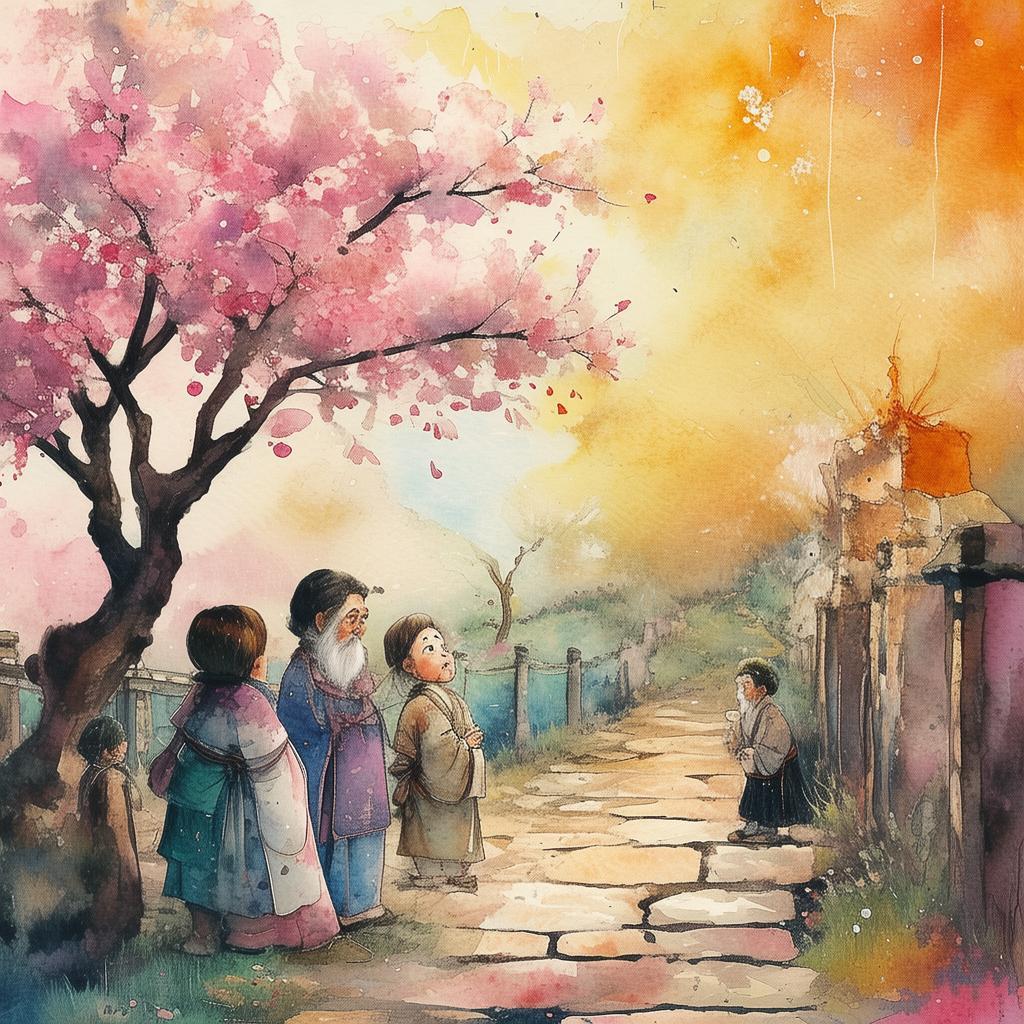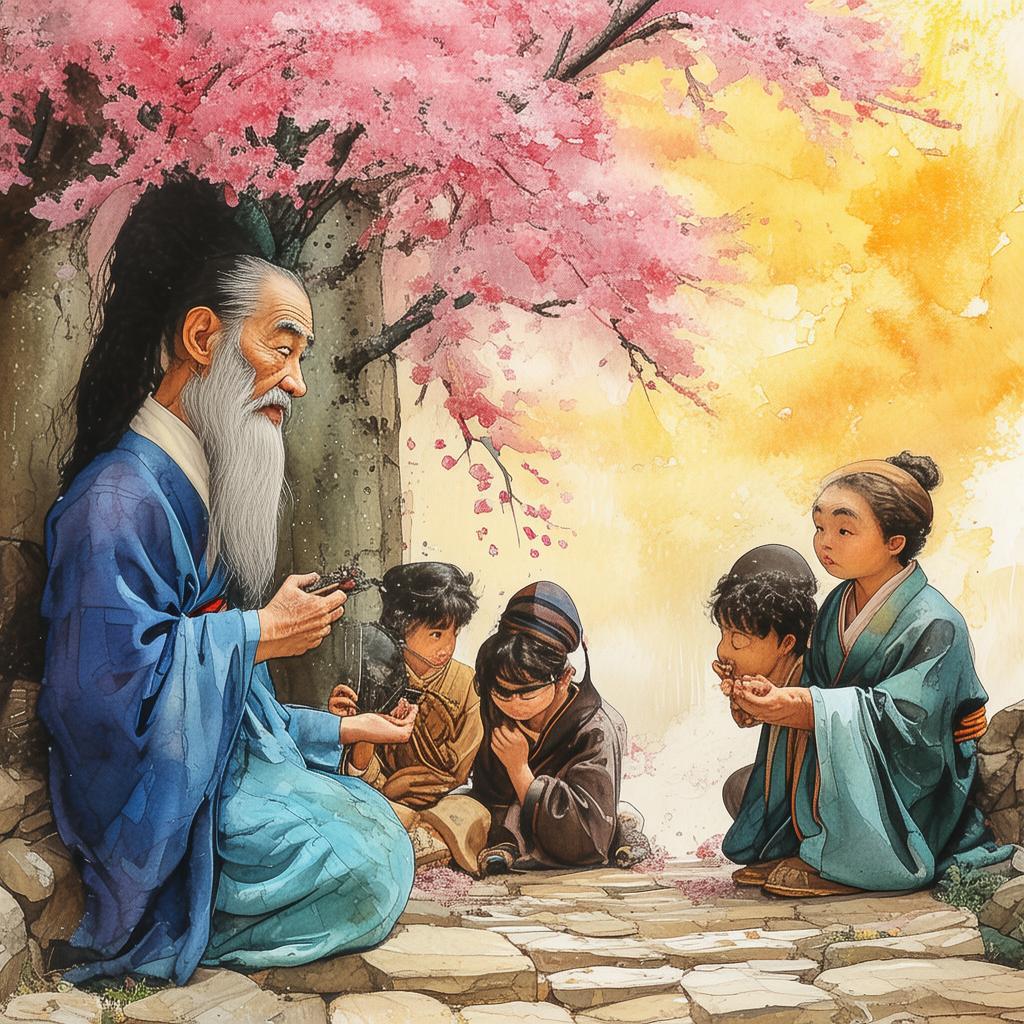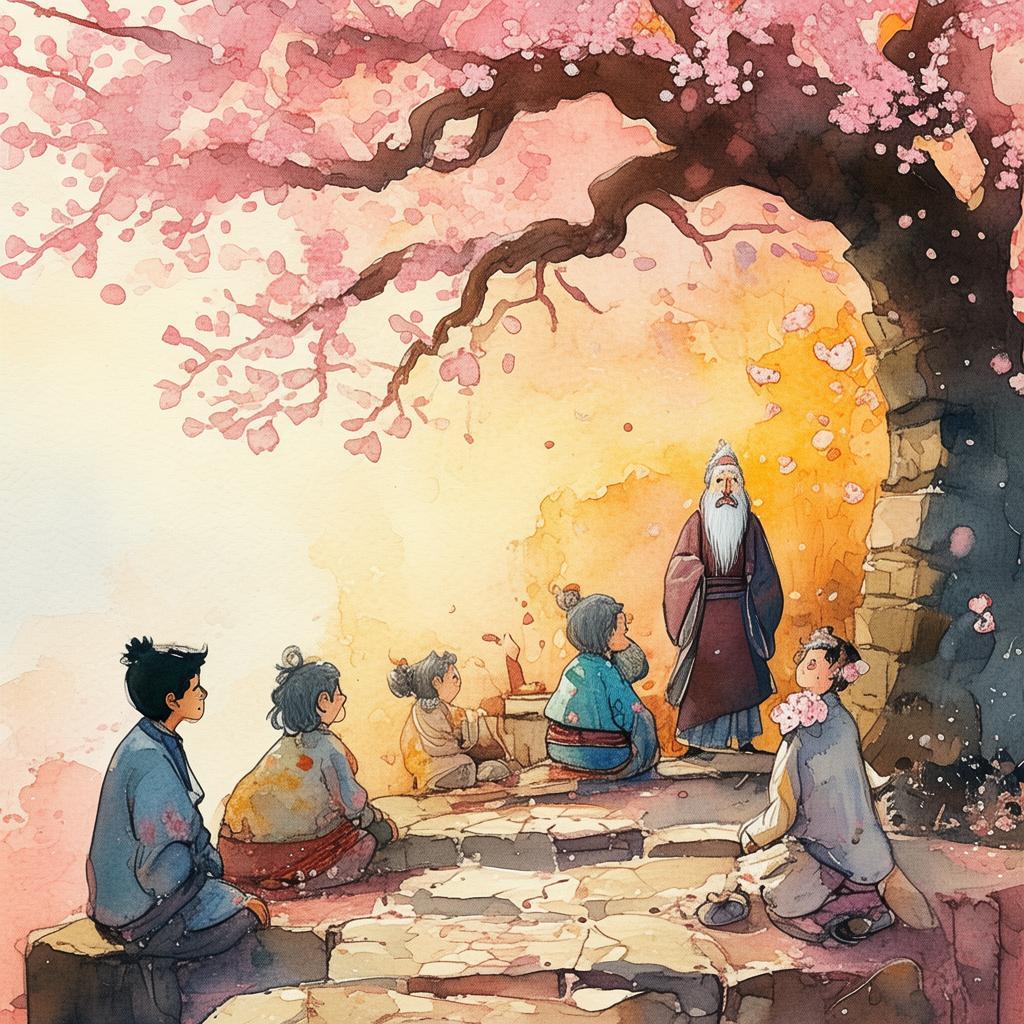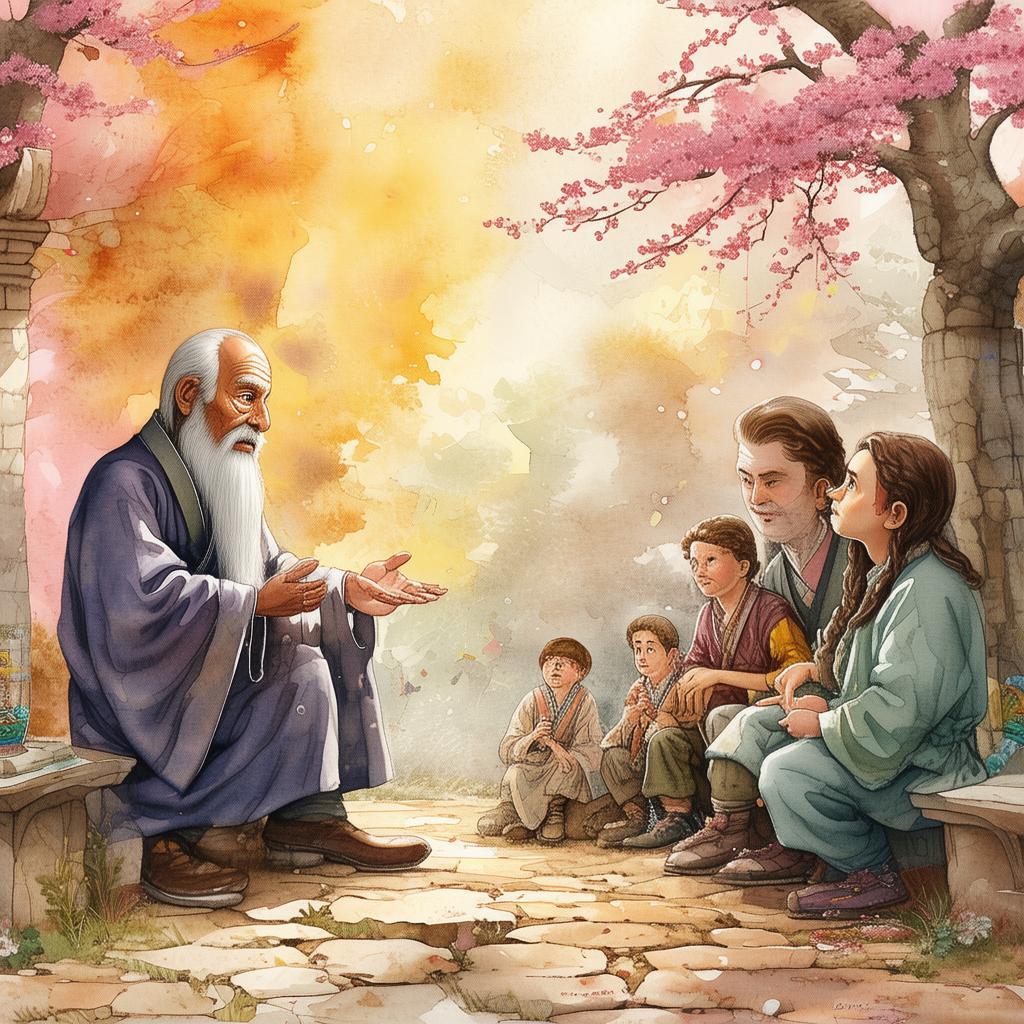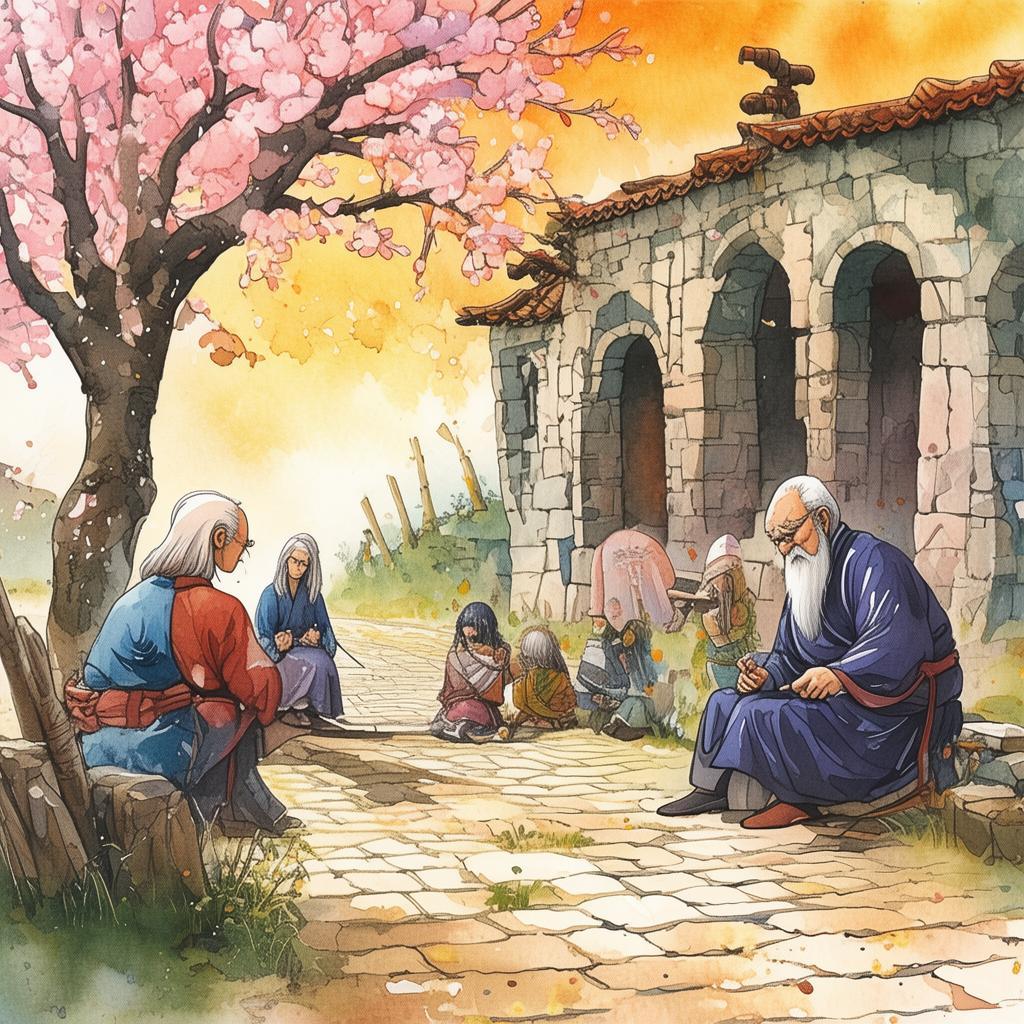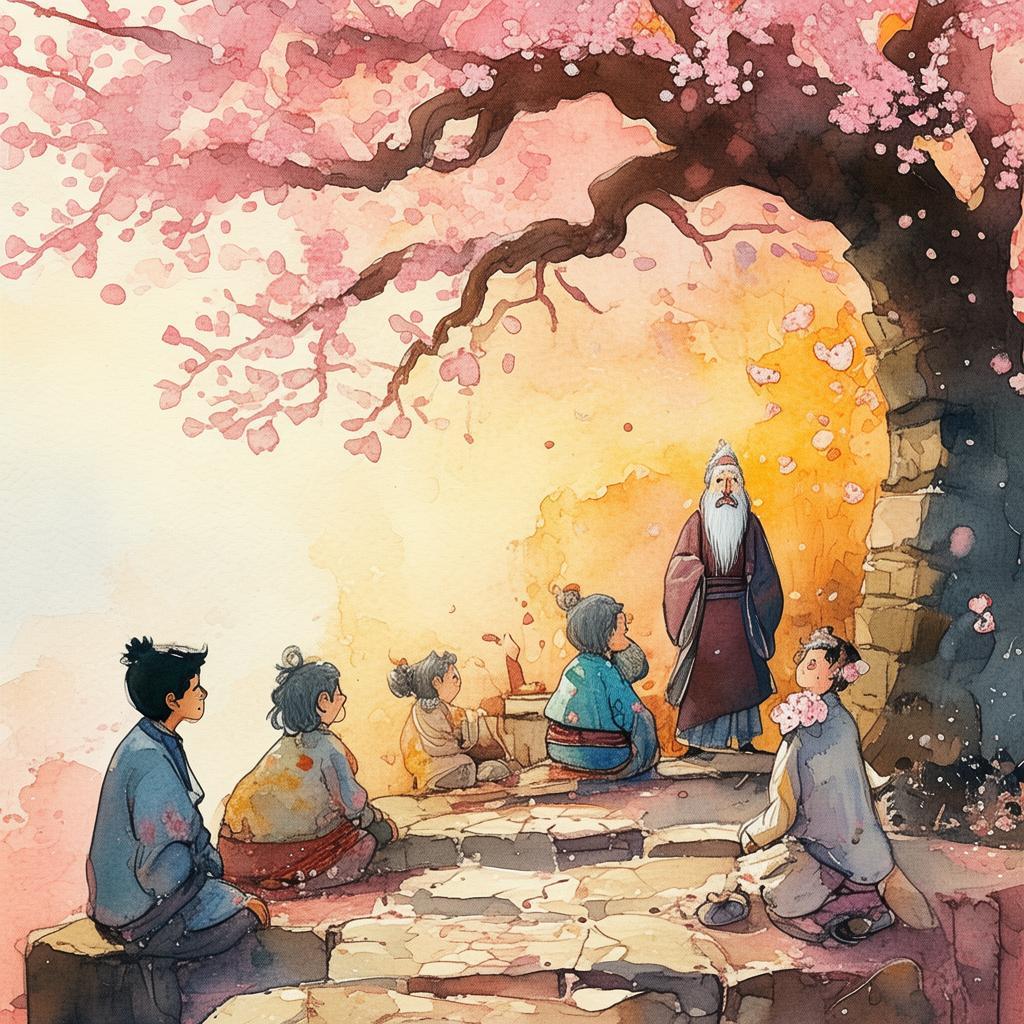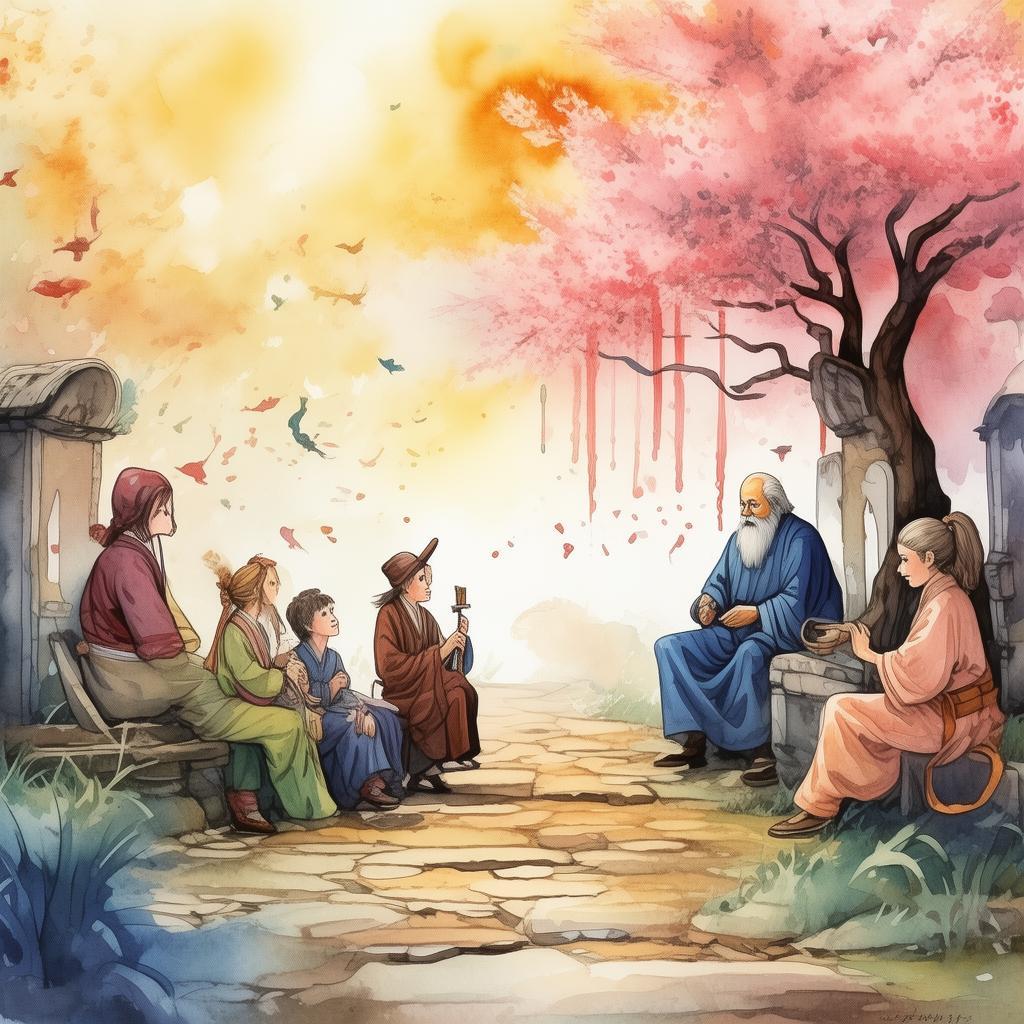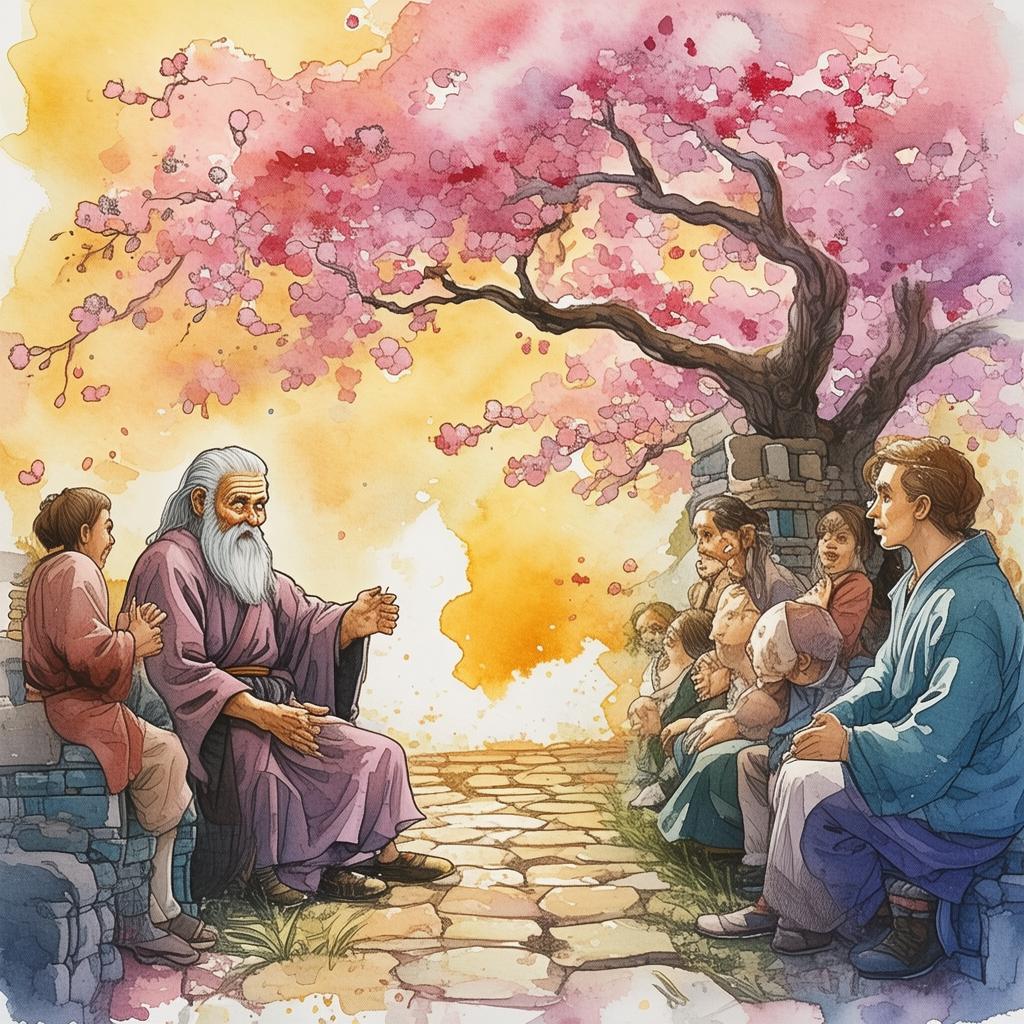Whispers of the Past: The Symphony of the Hundred Idioms
In the bustling city of Shanghai, where the past and the future danced together in the streets, there lived a young woman named Ling. She was a musician, a dreamer, and a seeker of hidden truths. Her life was a symphony of the ordinary, but she felt an inexplicable pull towards the extraordinary.
Ling had always been fascinated by the hundred idioms that her grandmother used to tell her stories. These idioms were like keys to a vast treasure chest of myths and legends, each one a story waiting to be told. But as she grew older, the stories seemed to fade away, lost in the hustle and bustle of modern life.
One evening, as Ling sat in her dimly lit apartment, practicing her violin, she heard a faint whisper. It was the voice of her grandmother, clear and distant, calling her name. "Ling, my dear, you must find the Symphony of the Hundred Idioms," the voice said. "It is the melody that binds the past and the future, and it holds the power to change your destiny."
Intrigued and a little scared, Ling set out on a journey to uncover the Symphony. She visited ancient libraries, talked to wise elders, and even delved into the secrets of the city's underground culture. Along the way, she encountered a cast of characters, each with their own story and connection to the idioms.
The first was a street performer named Hua, who told her the story of the idiom "The Tortoise and the Hare." Hua had spent years perfecting his act, using the idiom to teach the value of patience and perseverance. "The Tortoise may be slow, but he is the one who wins in the end," Hua said, his eyes twinkling with wisdom.
Next, Ling met a young artist named Mei, who was painting a mural depicting the idiom "The Cat and the Mouse." Mei explained that the idiom represented the delicate balance between fear and trust. "The cat may be cunning, but the mouse can outsmart it if it knows its own strength," Mei said, her brush moving swiftly across the canvas.
As Ling continued her quest, she encountered more idioms and their stories, each one adding a new layer to the Symphony. There was the idiom "The Blind Men and the Elephant," which taught about perception and understanding, and "The Fox and the Grapes," which spoke of envy and the desire for what one cannot have.
The journey was long and arduous, but Ling pressed on, driven by the whispers of her grandmother and the promise of the Symphony. Finally, she reached an old, abandoned factory on the outskirts of the city. Inside, amidst the dust and decay, she found an ancient, ornate box.
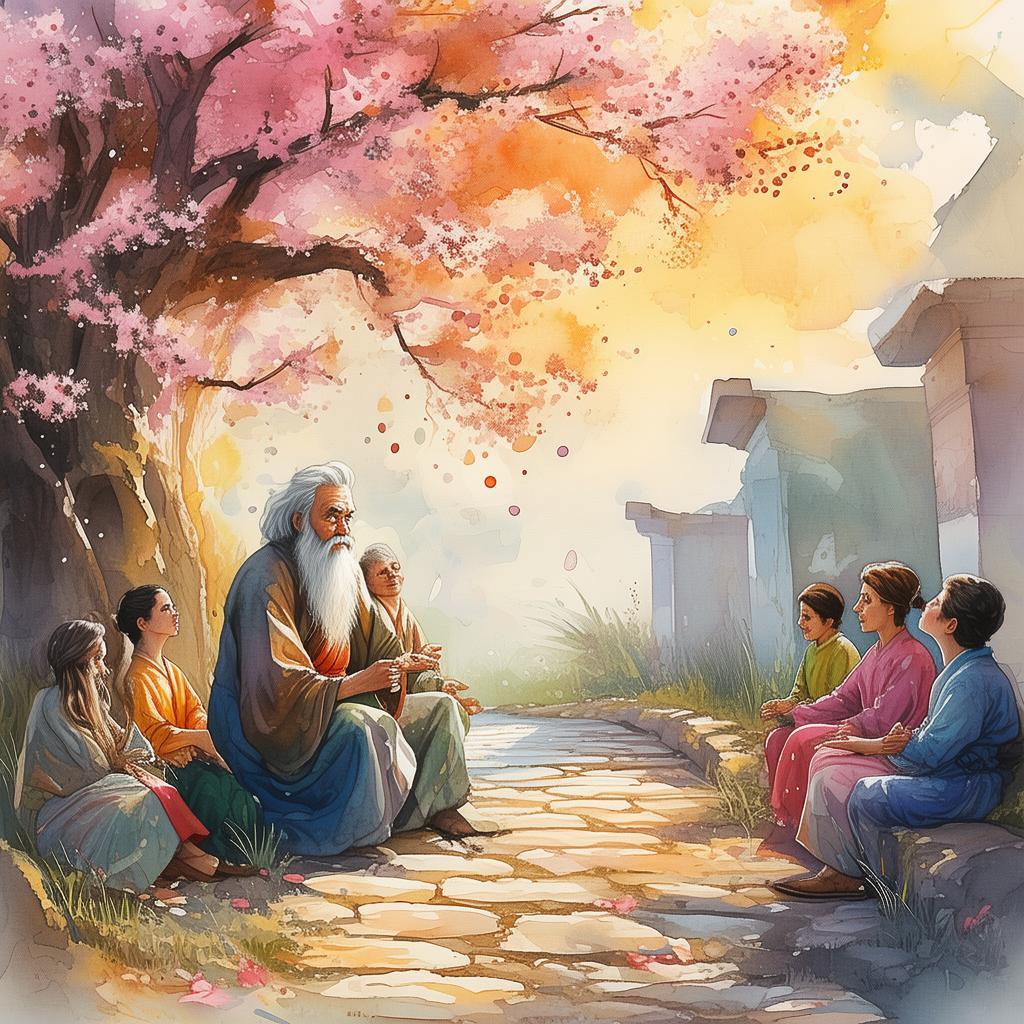
With trembling hands, Ling opened the box and discovered a set of ancient musical instruments, each one intricately carved with symbols of the idioms she had learned. She knew that this was the Symphony, the melody that would bring the past and the future together.
Taking a deep breath, Ling began to play. The music was haunting and beautiful, filling the factory with a sense of wonder and nostalgia. As she played, the walls of the factory began to shift, revealing a hidden chamber.
In the chamber, Ling found her grandmother, who had been waiting for her all along. "You have done well, Ling," her grandmother said, her eyes twinkling with pride. "The Symphony of the Hundred Idioms has been waiting for someone like you, someone who would understand its power."
Ling realized that the Symphony was not just a melody; it was a bridge between the past and the future, a reminder that the stories of our ancestors were still alive within us. With the Symphony in her heart, Ling knew that she could change the world, one idiom at a time.
And so, she returned to Shanghai, her violin in hand, ready to share the Symphony with the world. The city was filled with whispers of the past, and Ling was the one who would bring them to life, one note at a time.
✨ Original Statement ✨
All articles published on this website (including but not limited to text, images, videos, and other content) are original or authorized for reposting and are protected by relevant laws. Without the explicit written permission of this website, no individual or organization may copy, modify, repost, or use the content for commercial purposes.
If you need to quote or cooperate, please contact this site for authorization. We reserve the right to pursue legal responsibility for any unauthorized use.
Hereby declared.
